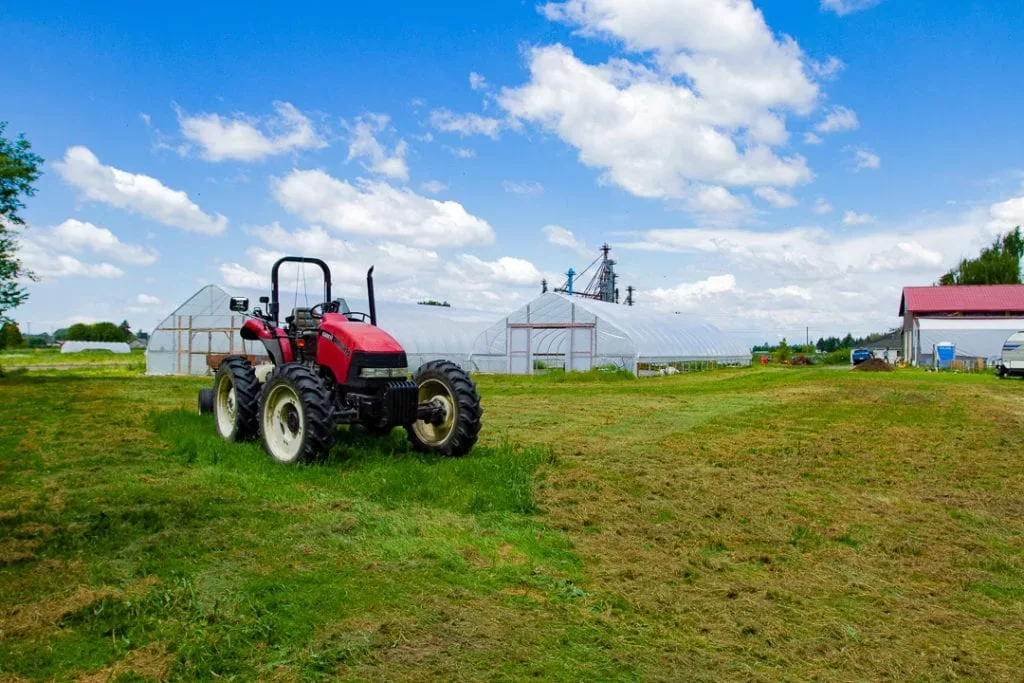
Local Farm Feature: Flynn Farms
Pulling out of the Downtown Co-op parking lot and watching how quickly the landscape changes from the hub-bub of city life to bucolic countryside acres gives one a deep appreciation for the abundance of our region—and just how local we mean when we say “local.”
In under 30 minutes, I’m pulling into the nondescript driveway at Flynn Farms in Everson, Washington. Farm owner Savannah and her gentle pitbull, Tahoe, are there to greet me and a few women, wide-ranging in age, stand chatting behind us. This is the Flynn Farms crew.
Savannah Flynn started Flynn Farms in 2017 at age 30. She moved to her current one acre plot last year as part of the Cloud Mountain Incubator Farm program: a land-based multi-grower project that helps new farmers overcome barriers to farming such as land access and training.
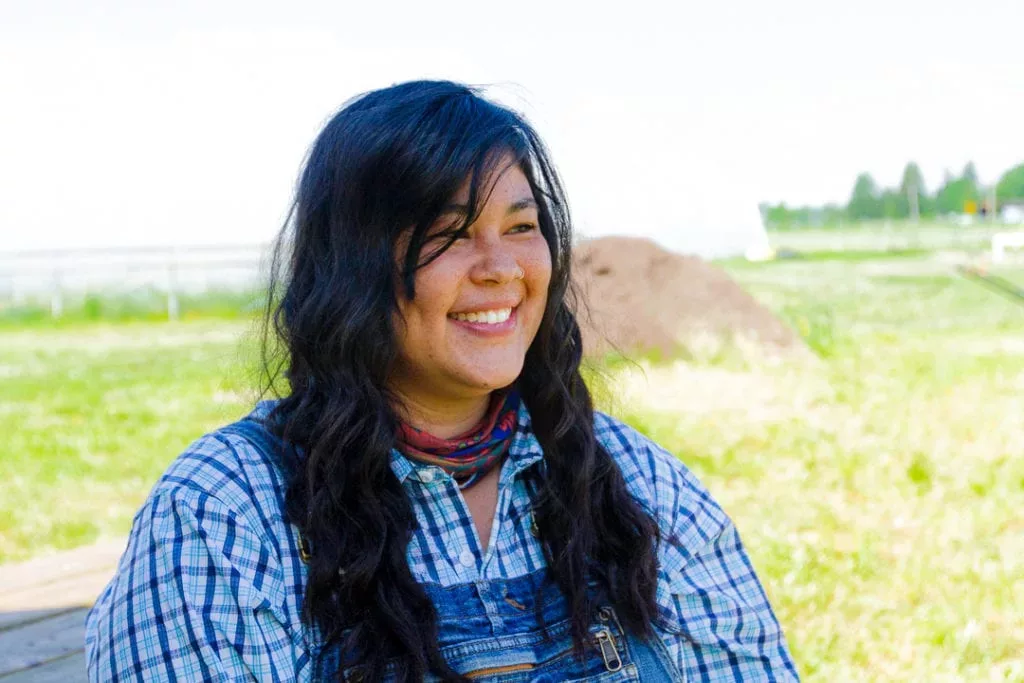
One can’t underestimate Savannah’s single acre. She is growing around 80 certified-organic crops and producing enough to run her own CSA program and provide the Co-op with seasonal produce items such as french breakfast radish, spring onions, salad greens, squash, peppers and lots of Tom Thumb popcorn. The Co-op was actually Flynn Farms’ first buyer in Savannah’s first growing season four years ago.
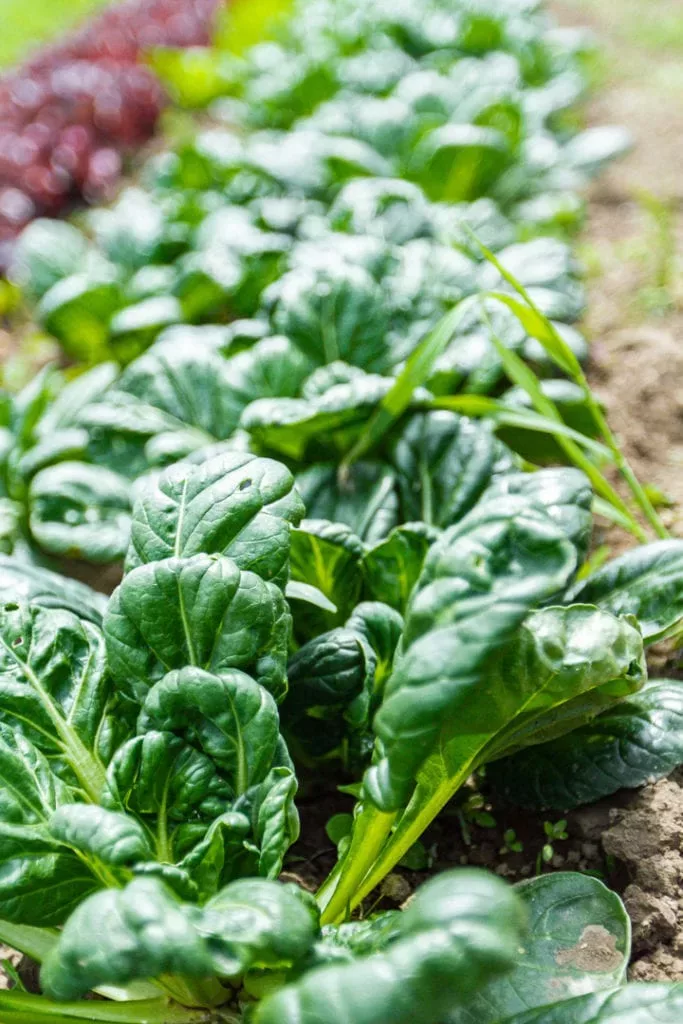
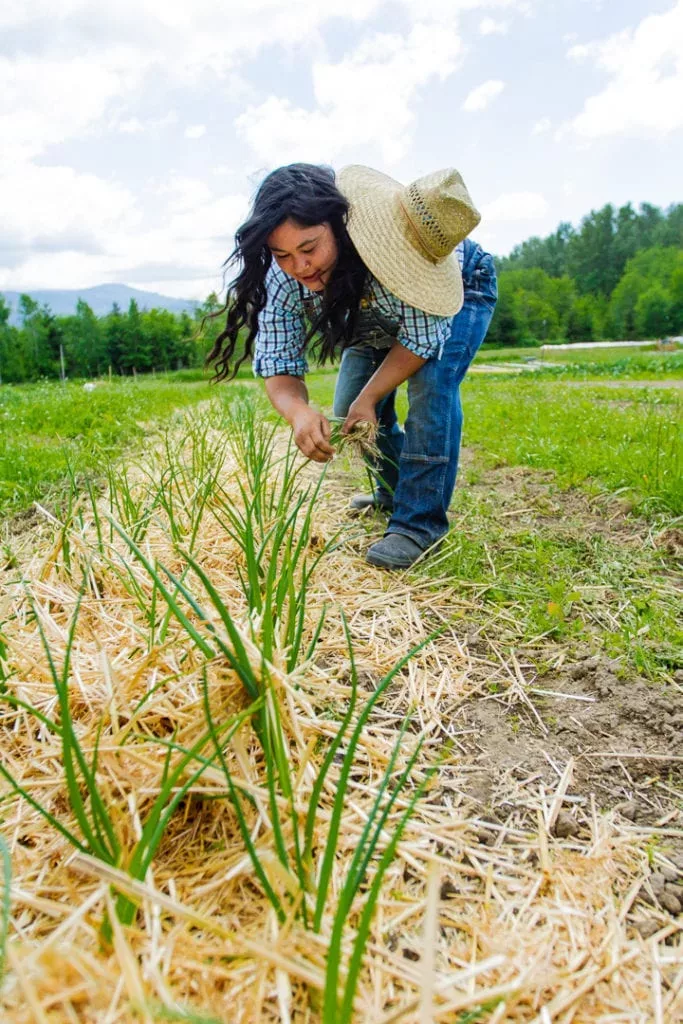
“She knew she wanted her farm to be different, to be a place for women of any age to work, to learn and to feel empowered…”
Savannah doesn’t believe in farming as it’s always been done. Having spent time working on various farms before she started her own, she noticed the lack of women in leadership and ownership roles. She knew she wanted her farm to be different, to be a place for women of any age to work, to learn and to feel empowered to start their own farms down the line.
Today, her modest crew is made up entirely of women, including the 4-year-old daughter of one of Savannah’s first CSA members. Mother-daughter duo Asta and Ava have been involved with the farm since 2017 and have been volunteering over the past year as a way to get outside during the pandemic and to provide young Ava with a fundamental knowledge of where food comes from and how to grow it herself.
Zosia and Sophie are paid farmhands. They are both college-aged and interested in agriculture. The girls come out a few days each week to help plant, weed, pick and pack crops to be distributed to CSA members or stores like the Co-op.
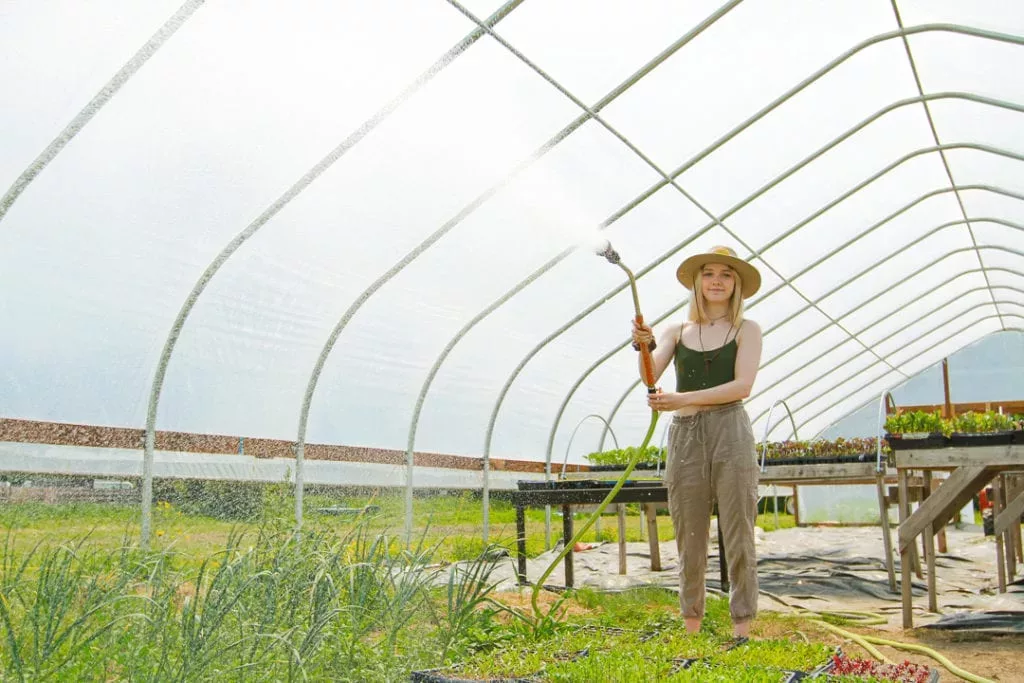
The Co-op was Savannah’s first buyer, but not her only. Flynn Farms has been donating to the Foothills Food Bank through Sustainable Connections’ Food to Bank On Program for a year. There, Savannah connected with Noelle Beecroft from Cooking Matters, a program put on by the WSU extension in Bellingham and the Foothills Food Bank to help low-income folks learn how to cook with fresh, organic produce. Flynn Farms will be the produce supplier for that program.
If you’re familiar with Otherlands Beer Co. in the Sunnyland neighborhood, you know that their European-street-food-inspired, vegetarian menu brings something new and exciting to the Bellingham food scene. Head chef and Co-op member-owner Noel Keyes loves creating menus that showcase local veggies each season, and educating folks about where their food comes from. Savannah and Noel got in touch over Instagram and Flynn Farms will now be supplying Otherlands with some of the organic, seasonal produce on their menu.
While Flynn Farms is slated to make its mark in the local farming community, in many ways it’s still a fledgling operation. Operating a farm business is costly, and currently, Savannah is still waking up around 3 am to load UPS trucks for a few hours before heading to work at the farm in order to keep herself afloat. Someday soon, she’d like to only work at the farm. Working with vendors like the Co-op helps put Savannah on track to achieve that goal.
“When you shop at the Co-op you’re helping local farmers continue their work of bringing healthy food to our tables.”
When you shop at the Co-op, you’re helping local farmers continue their work of bringing healthy food to our tables. Your dollars go directly back to supporting the mission of farmers like Savannah, who is in turn empowering a new generation of BIPOC and female farmers.
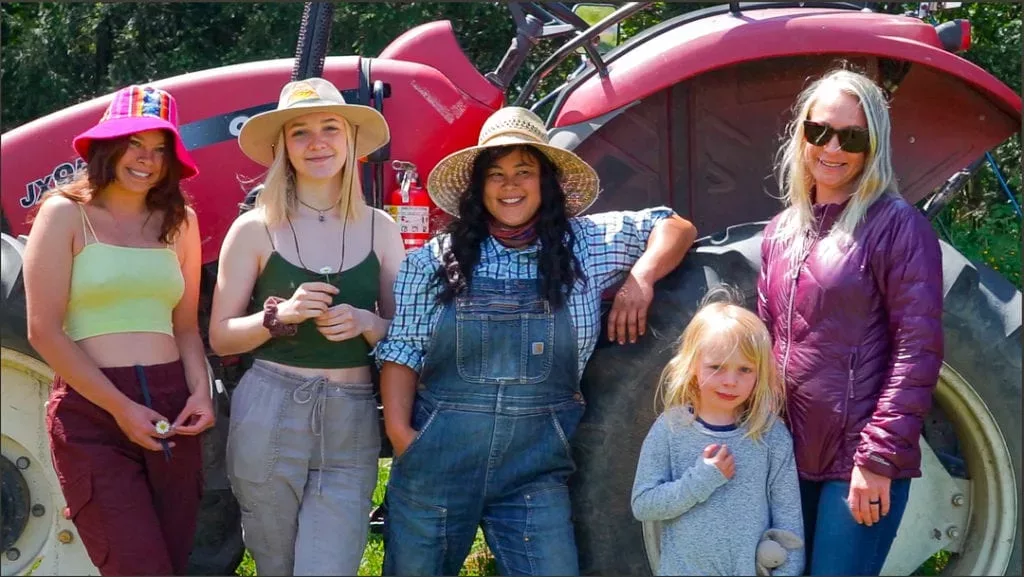
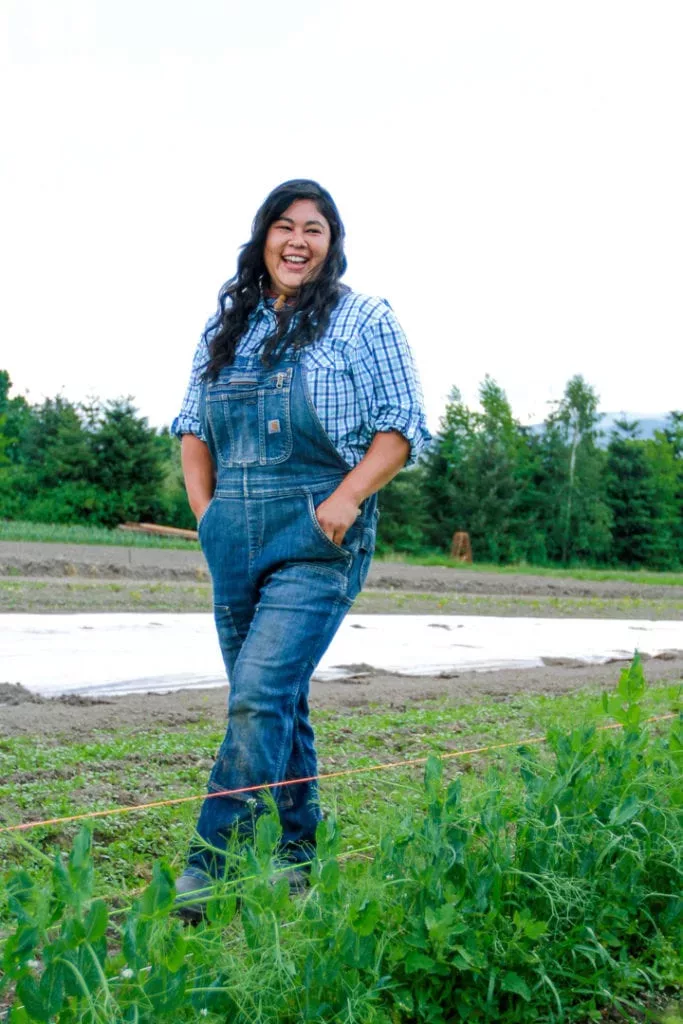
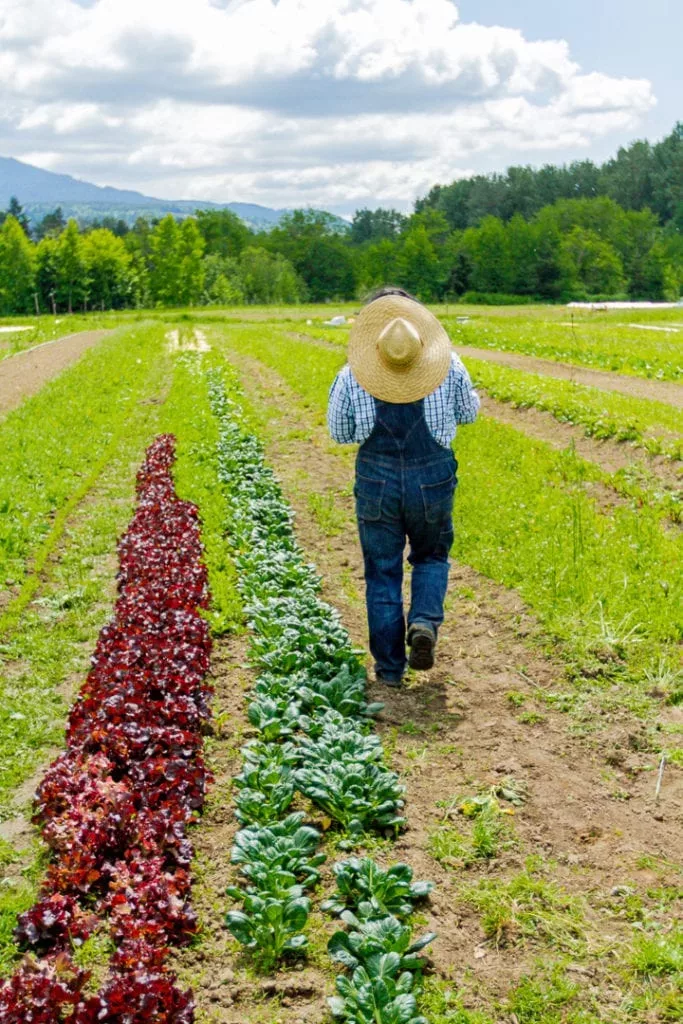
Watch the full video here.